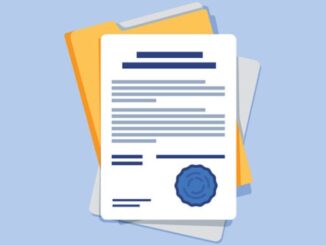
What to do when someone applies for a firearms licence, including responding to the police and conscientious objection
The Home Office statutory guidance
The statutory guidance was published to create greater consistency and higher standards of decision-making for police firearms licensing applications (including shotguns). This is aimed primarily at the police in their task of assessing the suitability of applicants for the granting and renewal of firearms certificates – including in relation to medical checks. While the granting of firearm certificates is an operational matter for the police, they are required to use the statutory guidance.
The new statutory guidance applies to safeguards relating to firearms ownership, such as:
- police background checks;
- the factors to be considered;
- the weight to be given to evidence that has not been tested by the courts;
- new arrangements for assessing the medical suitability of applicants.
It ensures that no-one is granted a firearms certificate unless their regular GP, or a suitably qualified alternative doctor with access to the full medical record, has confirmed to the police whether the applicant has any relevant medical conditions; this includes any mental health conditions.
Key principles within the statutory guidance
Gun ownership is a privilege, not a right
UK firearms policy is based on the fact that firearms are dangerous weapons and the state has a duty to protect the public from their misuse.
Assessment
Permission to possess, purchase or acquire a firearm will be granted to an individual who is assessed by the licensing authority, ie. the police, as not posing a threat to public safety and having good reason to own the firearm.
The firearm must serve a valid purpose
Firearms applicants should be able to demonstrate to the licensing authority that they require their firearm on a regular, legitimate basis for work, sport or leisure (including collections or research).
The applicant must make the arrangements
It is the responsibility of the applicant to arrange for information about their medical history to be provided by their GP (or another suitably qualified doctor registered with the GMC) to the police firearms licensing department dealing with their application.
When the medical information is being provided to the police by a doctor who is not the GP of the applicant, the doctor must receive the applicant’s full medical record directly from the GP practice and not via the applicant.
Information must be provided by a suitably qualified GMC-registered doctor
Chief officers of the police should use information provided by a suitably qualified GMC-registered doctor for every person who applies for either the granting or renewal of a firearm or shotgun certificate, or to be registered as a firearms dealer, to assess any medical suitability issues.
If an applicant does not have a GP in the UK they will not be able to fulfil the criteria to be issued with a firearm or shotgun certificate.
Applicants must declare relevant conditions
The application form requires the applicant to declare relevant medical conditions.
The police may ask the applicant’s GP for relevant medical information – both during the application process and at any time during the validity of the certificate if there are concerns about the applicant’s continued fitness to possess firearms safely.
GPs are required to provide statements of fact and not opinions.
Confidentiality
Doctors owe a duty of confidentiality to their patients but they also have a wider duty to protect the health of patients and the public. Depending on whether an applicant or licence holder has capacity or not, or whether they pose a risk, GPs may, depending on the individual circumstances, share relevant information with the police on the following grounds:
- with the individual’s consent;
- on public interest grounds;
- or, in some rare circumstances, if it is legally required.
Relevant medical conditions
When a person applies for a firearm or shotgun certificate, or to be registered as a firearms dealer, the applicant will ask their GP (or a suitably qualified GMC-registered doctor) to provide information to the police which will confirm whether or not the applicant is or has been diagnosed with, or treated for, any relevant medical condition which could affect their ability to possess a firearm safely. Read more about relevant medical conditions.
General access to the applicant’s medical record
Doctors should not be asked to give general access to an applicant’s medical record as this may result in doctors being in breach of the Data Protection Act 2018, nor should they be asked to either endorse or oppose applications. Responsibility for the decision about whether a person is suitable to be granted a certificate lies with the police, not the doctor.
Please see below regarding the supply of the medical record.
It’s the applicant’s responsibility to provide information to the police
It is for the applicant to arrange for the medical information to be sent to the police – either with the application itself or, alternatively, directly from the doctor; an application for a certificate will not be granted without such medical information.
If medical information is not provided the police should inform the applicant that the application cannot be progressed in the absence of the required information from the doctor, and will be refused.
The police may contact the applicant, or the doctor directly, to request missing medical information before making such a refusal, at the chief officer’s discretion.
The doctor must be GMC-registered
An applicant may, if they wish, approach a suitably qualified GMC-registered doctor to supply the relevant medical information to the police firearms licensing department.
The police may contact the doctor
Where the doctor indicates that there are relevant medical issues, and the police require further medical information in order to consider the application, the police may, at the chief officer’s discretion, contact the doctor directly to discuss the application or seek further clarification.
If necessary, the police should ask the applicant to contact the doctor to get further information, such as a medical report, about these issues.
Giving the reporting doctor access to the medical record
Responding to the police’s initial letter
The proper regulation of firearms is in the public interest and it is important that GPs (and third party doctors, if relevant) respond to the initial police letter. You should respond to the letter within 21 days; failure to respond could put you at professional risk.
As you are not contracted to provide these services under the GMS contract, you are entitled to charge the applicant your reasonable fee. You may withhold the report until the fee has been paid; in these circumstances you must inform the police that the reason for the delay is that you are awaiting payment.
On receiving a letter from police authorities, depending on your professional or ethical position, you may decide to respond by stating one of the following:
Option 1
I am content to provide a summary limited to medical facts and compiled from the records for a fee which I shall charge to the applicant. You will receive the report upon my receipt of this fee from the applicant. Until such time as you receive my report you should assume that the applicant has declined to provide this fee. NB. If practices charge a fee for this non-contractual work the BMA cannot not advise any further on the amount.
Option 2
I am content to fill out the requested report and will charge no fee. The report is enclosed/ will follow at my earliest convenience.
Refusal because of your beliefs
GPs can refuse to engage in the firearms certification process on grounds of conscientious objection because of religious or ethical beliefs. They must inform the police of this.
Legal opinion is that a GP who refuses to engage on these grounds should have due regard to the GMC guidance – although this guidance is primarily written for the purposes of referral for procedures, treatments and interventions rather than the compilation of a medical report.



Be the first to comment